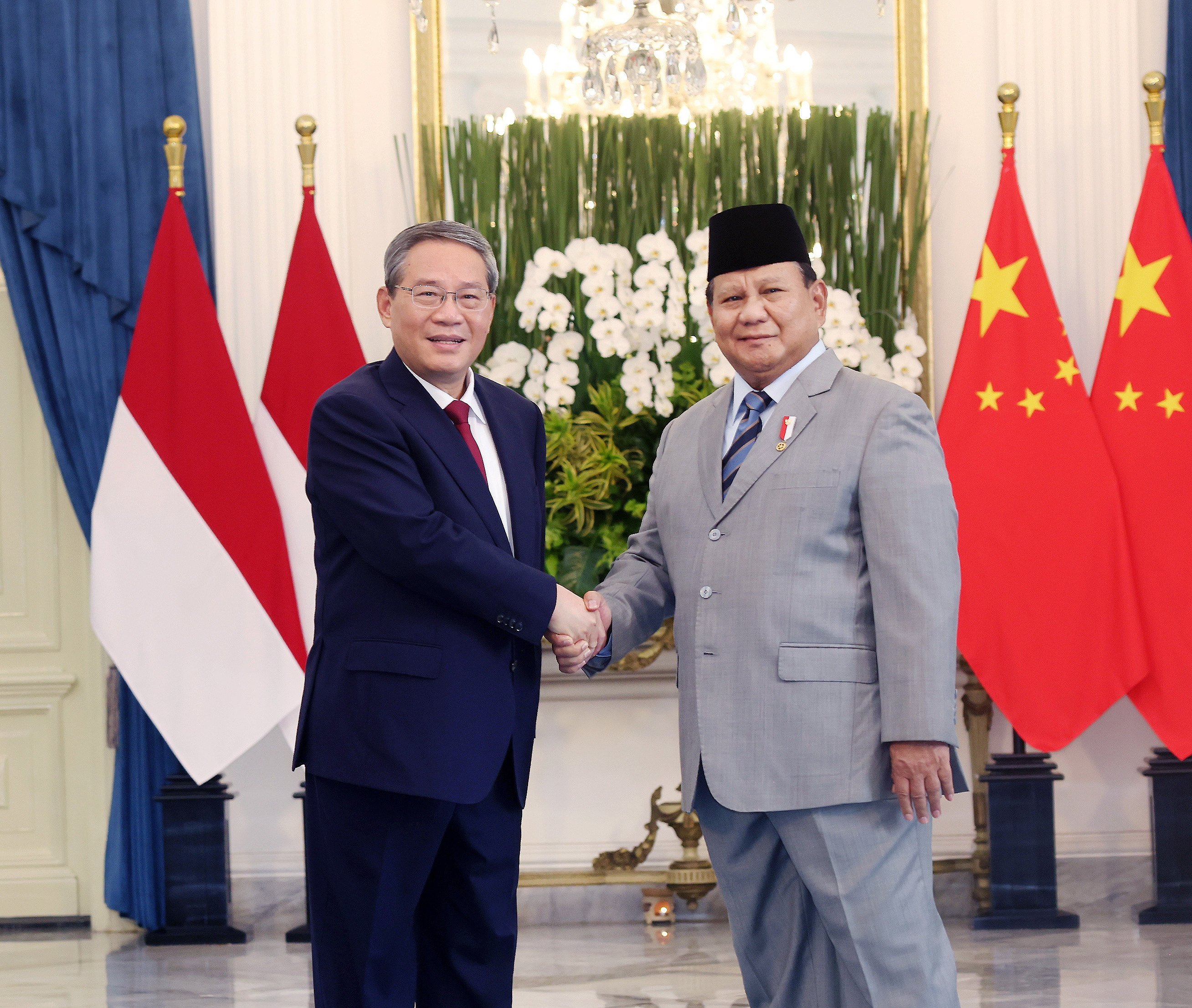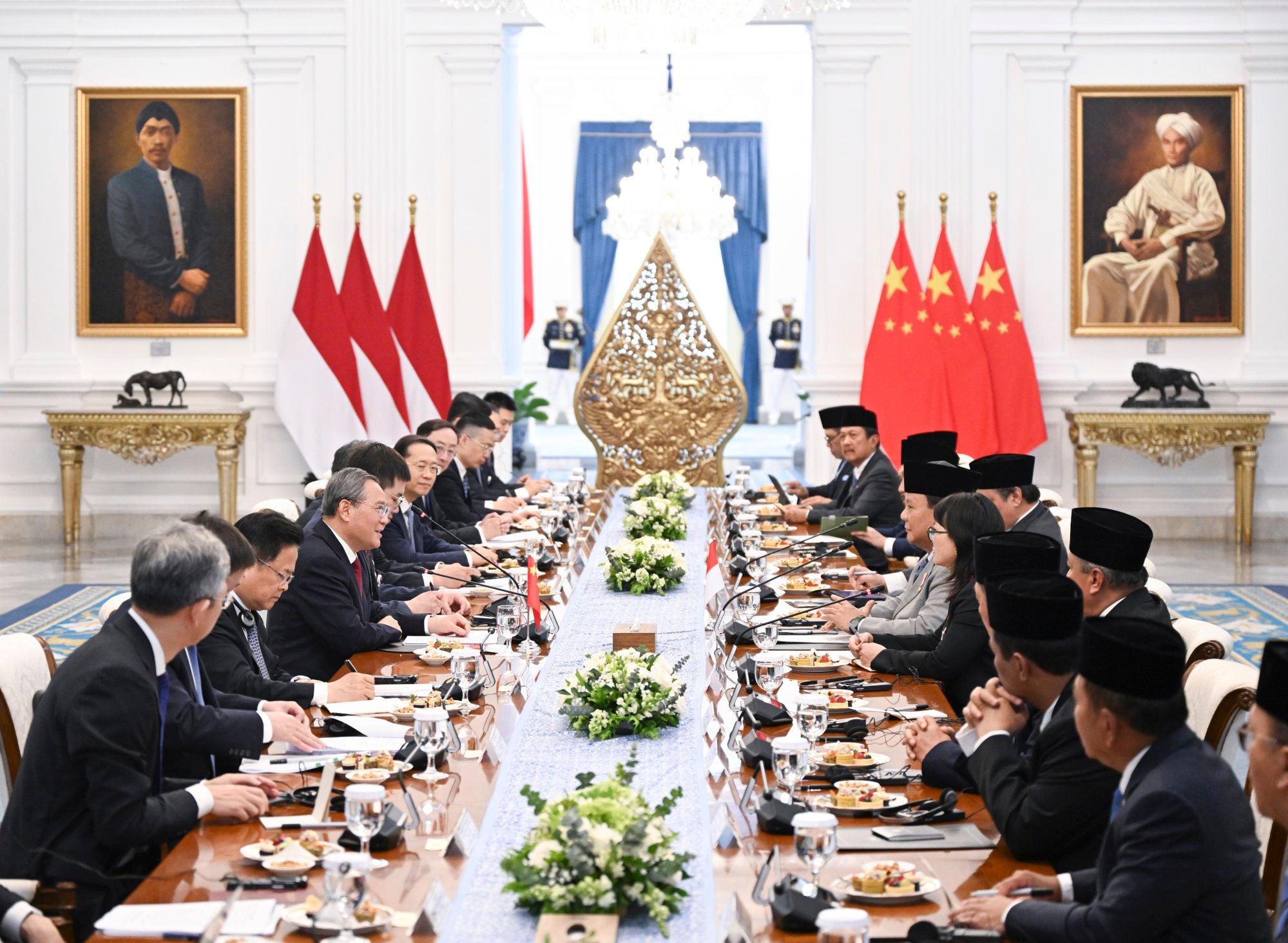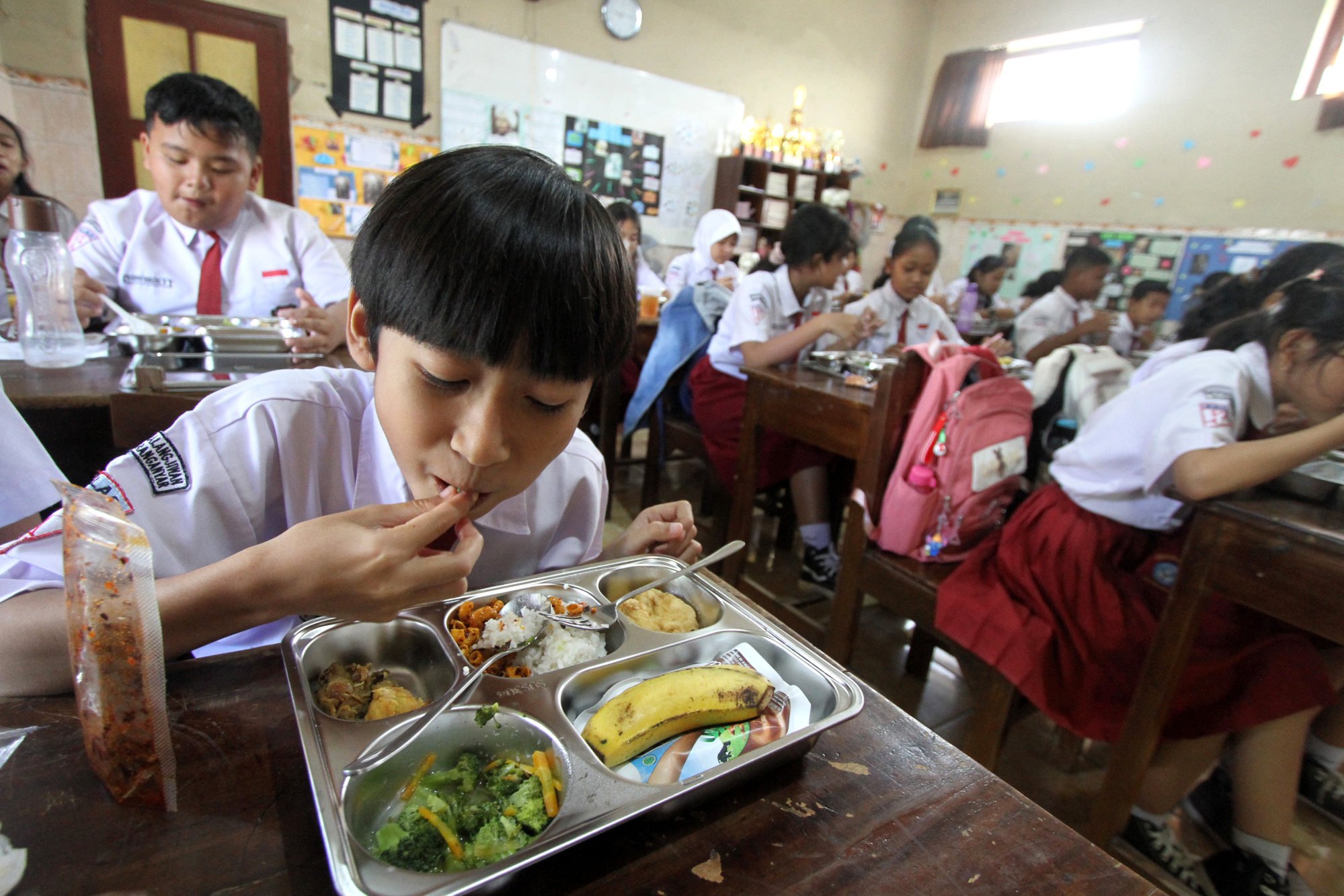Indonesia’s Prabowo lauds China’s anti-colonialism record amid deepening ties
China’s leadership on the Gaza issue and anti-imperialist stance will help draw it closer to Indonesia and countries in Africa, analysts note

Indonesia’s President Prabowo Subianto has lauded China’s long-standing support for anti-colonial struggles and developing nations, calling Beijing a key partner in the pursuit of a “safe and prosperous region” as Jakarta moves to deepen strategic and economic ties with the Asian superpower.
While hosting Chinese Premier Li Qiang in Jakarta on Saturday, Prabowo praised China’s record of standing up to imperialism and its backing of Palestinian statehood – an issue that resonates deeply in Indonesia, the world’s most populous Muslim-majority country.
“I would like to express my respect to China, which has consistently defended the interests of developing countries … fighting oppression, imperialism, colonialism and apartheid,” Prabowo said. “China defends the liberation struggles in countries that are still oppressed by imperialism and colonialism.”
China had supported liberation movements even during its own nation-building phase and continued to do so today, he said, citing Beijing’s “leadership, especially in defending the Palestinian people” as “a source of pride for all of us”.

Indonesia has long advocated for a two-state solution in the Israel-Palestinian conflict and has grown increasingly vocal as civilian casualties in Gaza mount.
Prabowo, a former army general trained in the United States, has frequently criticised what he sees as Western double standards and the erosion of global moral leadership – particularly Washington’s failure to halt the conflict.
Prabowo has been quite public in his admiration for China, particularly of late Chinese leader Deng Xiaoping and his blending of socialism and capitalism, which he has cited as a source of inspiration for his own economic vision.
Ple Priatna, a former Indonesian diplomat who served in multiple postings including Beijing, described Prabowo’s framing of China’s anti-imperialist credentials as “factual”.
“China is a developing country that dares to take a stand on the Gaza and Palestine issues. Beijing’s anti-colonialism stance will make it not only get closer to Indonesia but also to countries in Africa,” Ple told This Week in Asia on Monday.
He pointed to the Hamas-Fatah meeting in Beijing in July last year, where the two factions agreed to form a government together in light of Israel’s war in Gaza.
Li’s visit to Indonesia underlined Beijing and Jakarta’s “very strategic, very important and very promising” ties which “can determine the state of peace and stability in the region”, Prabowo said.
Indonesia “will continue to support and accelerate the completion of the Code of Conduct negotiations” in the South China Sea, where Prabowo said he saw China as “a decisive partner” to bring the long-awaited conduct into fruition.
Indonesia and China generally enjoy steady and strong bilateral relations, but have at times clashed over China’s intrusion in the North Natuna Sea, part of Indonesia’s exclusive economic zone in the South China Sea. The resource-rich water falls under China’s nine-dash line, which claims almost all of the South China Sea.
China is Indonesia’s biggest trade partner, with annual trade volume between the two countries reaching more than US$130 billion, according to Prabowo. He invited Chinese investors to explore opportunities beyond natural resources, such as education, health, tourism and science.
“I have met many figures from the Chinese business world. I see their commitment. I see their desire to adapt to the conditions and circumstances in Indonesia. They are very open to listening to our difficulties and our interests,” the 73-year-old president said.
On Sunday, Prabowo and Li witnessed the signings of a range of memorandums of understanding (MOUs), which includes strengthened collaborations to encourage bilateral transactions in local currencies and boost the industrial sector and supply chain.
Airlangga Hartarto, coordinating minister for economic affairs, said on Sunday that Jakarta also offered investments in “energy self-sufficiency and giant sea wall” projects to Chinese investors.

On Saturday, Anindya Bakrie, head of the Indonesian Chamber of Commerce, signed an MOU with the China Chamber of Commerce in Indonesia to work together to support Prabowo’s flagship free nutritious meals programme, which aims to feed more than 89 million schoolchildren, toddlers, pregnant women and breastfeeding mothers.
The two sides would build up to 1,000 jointly operated kitchens, with a prototype set for completion before August 17, or Indonesia’s Independence Day, Anindya said.
The China-built kitchens would focus on supplying meals for children in regions where “there is a lot of Chinese investments”, such as in nickel mining hubs of East Halmahera or Sulawesi, Anindya said, but did not disclose how much China was expected to invest in the programme.
Beijing’s potential involvement in the US$4.2 billion free meal scheme could help reduce anti-China sentiment in Indonesia, which had been “haunting” the relations between the two countries for years, Ple said.
“The relationship between Jakarta and Beijing is always haunted by the sensitivity [stoked by rumours such as] Indonesia is being colonised economically by China,” Ple said.
Those accusations had cast a shadow over bilateral ties, but Ple said they should disappear with Beijing’s “increasingly transparent” involvement in Indonesia.
“Their [investments in the free meals scheme] can be seen not in the form of money, but immaterial things like supplying food or lunchboxes for the children.”